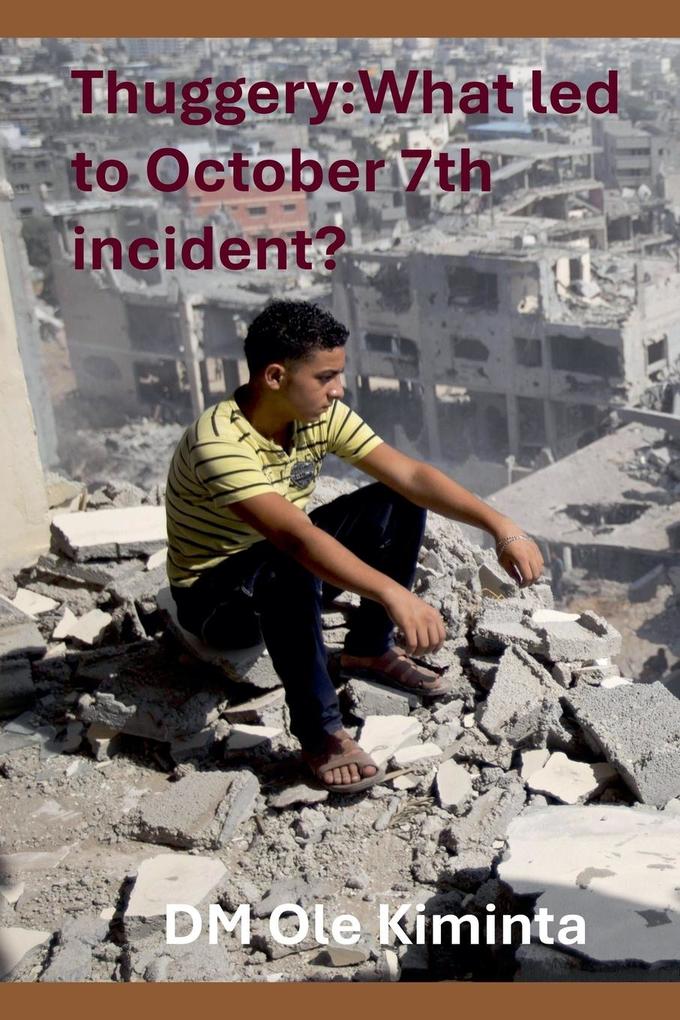
Zustellung: Do, 19.06. - Mi, 25.06.
Versand in 2 Wochen
VersandkostenfreiBestellen & in Filiale abholen:
The October 7th incident in Palestine can be traced back to a complex interplay of ideologies and motivations that have shaped the region's socio-political landscape over decades. At the core of these ideologies is the longstanding conflict between Palestinian nationalism and Israeli statehood. Palestinian nationalism emerged as a response to colonialism and the displacement of Palestinians following the establishment of the state of Israel in 1948. This sense of identity and struggle for self-determination has fuelled various movements and factions within Palestine, each interpreting the ideology in ways that reflect their unique aspirations and grievances.
A prominent factor influencing motivations within this context is the historical trauma experienced by Palestinians. The Nakba, or "catastrophe," refers to the mass displacement of Palestinians during the 1948 Arab-Israeli War, which left a lasting scar on the collective psyche of the Palestinian people. This event has become a cornerstone of Palestinian identity, instilling a sense of urgency and desperation among those who feel their rights have been systematically denied. Consequently, the desire for revenge, justice, and recognition has driven some factions to adopt more militant approaches, seeing violence as a means to reclaim lost land and dignity.
In contrast, among Israeli communities, ideologies of security and survival are paramount. The historical context of anti-Semitism and the Holocaust has deeply influenced Israeli society, leading to a strong emphasis on national security and the protection of the Jewish state. The fear of existential threats has fostered a mindset that often views Palestinian resistance as an aggression that must be met with force. This mutual perception of threat has perpetuated a cycle of violence, where each side sees their actions as justified responses to the other's provocations, creating a dangerous escalation in hostilities.
A prominent factor influencing motivations within this context is the historical trauma experienced by Palestinians. The Nakba, or "catastrophe," refers to the mass displacement of Palestinians during the 1948 Arab-Israeli War, which left a lasting scar on the collective psyche of the Palestinian people. This event has become a cornerstone of Palestinian identity, instilling a sense of urgency and desperation among those who feel their rights have been systematically denied. Consequently, the desire for revenge, justice, and recognition has driven some factions to adopt more militant approaches, seeing violence as a means to reclaim lost land and dignity.
In contrast, among Israeli communities, ideologies of security and survival are paramount. The historical context of anti-Semitism and the Holocaust has deeply influenced Israeli society, leading to a strong emphasis on national security and the protection of the Jewish state. The fear of existential threats has fostered a mindset that often views Palestinian resistance as an aggression that must be met with force. This mutual perception of threat has perpetuated a cycle of violence, where each side sees their actions as justified responses to the other's provocations, creating a dangerous escalation in hostilities.
Produktdetails
Erscheinungsdatum
14. Mai 2025
Sprache
englisch
Seitenanzahl
152
Autor/Autorin
DM Ole Kiminta
Verlag/Hersteller
Produktart
kartoniert
Gewicht
213 g
Größe (L/B/H)
229/152/9 mm
ISBN
9781069498625
Bewertungen
0 Bewertungen
Es wurden noch keine Bewertungen abgegeben. Schreiben Sie die erste Bewertung zu "Thuggery" und helfen Sie damit anderen bei der Kaufentscheidung.









